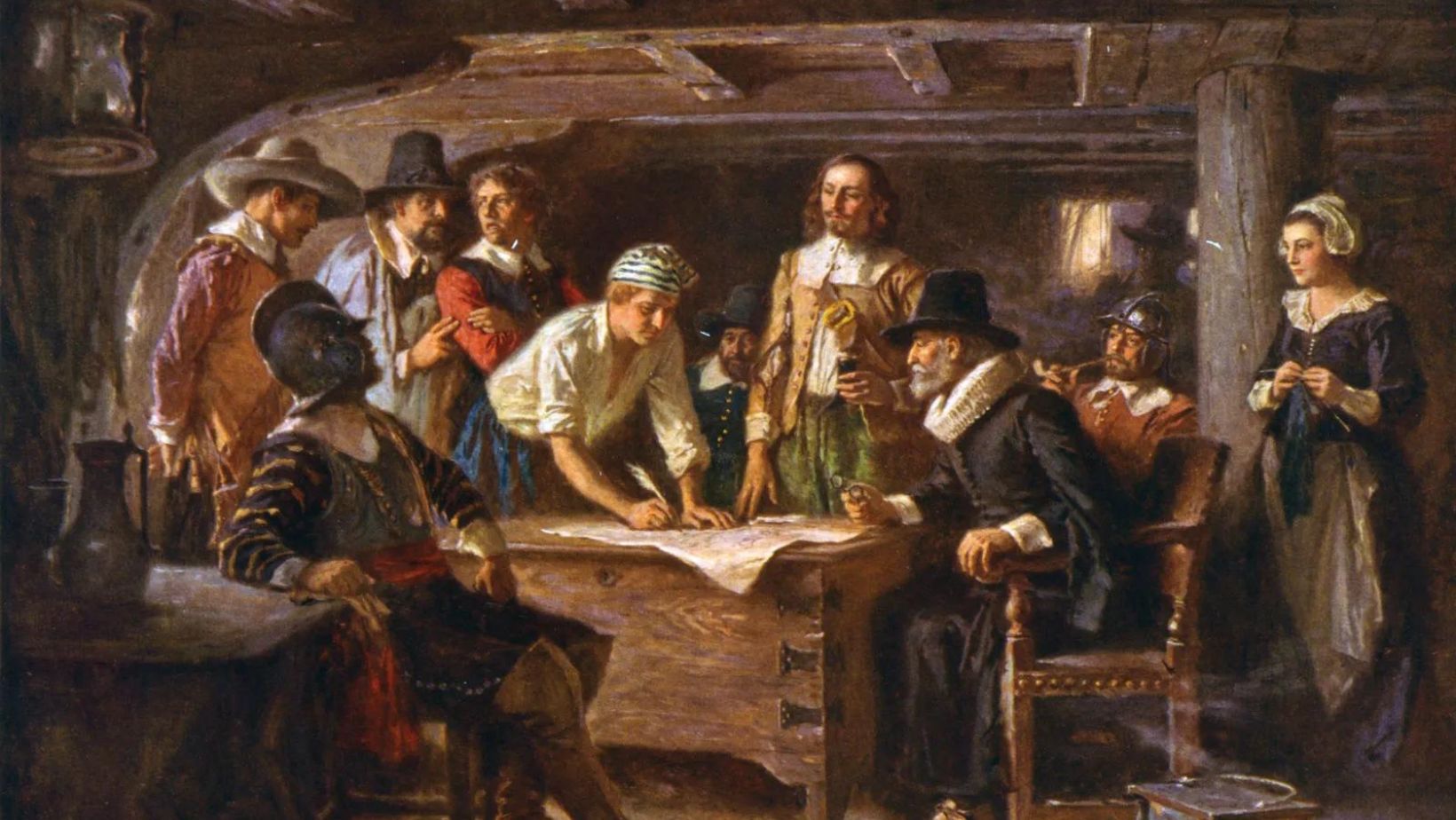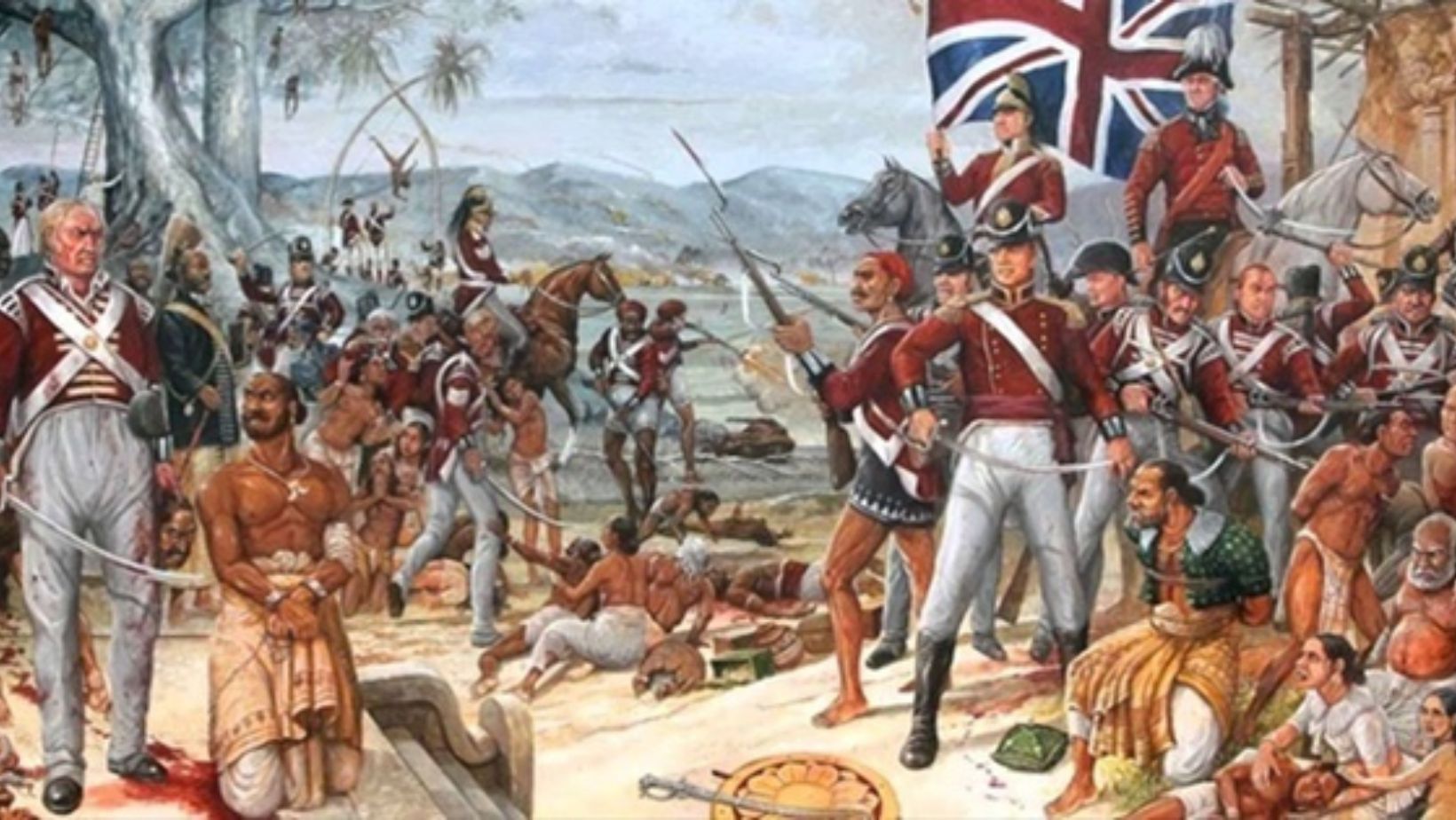The British colonization of America is a fascinating and complex story. It’s a tale of brave settlers, new beginnings, and the birth of a nation. But it’s also a story of conflict, conquest, and the clash of cultures.
I want to take you on a journey back in time to the early days of British settlement in the New World. We’ll explore the motivations behind the colonization efforts, the challenges faced by the colonists, and how they shaped the future of America.
Along the way, we’ll meet some key players in this epic drama, from the intrepid explorers who first set foot on American soil to the revolutionary leaders who fought for independence. So sit back, relax, and dive into the untold story of British colonization in America.
Table of Contents:
- Colonial America: The British Empire’s Expansion
- The 13 British Colonies
- Colonial Life and Society
- The Road to Revolution
- The Impact of British Colonization
- Conclusion
Colonial America: The British Empire’s Expansion

The British colonization of America was a pivotal moment in history that would shape the future of the continent and the world. In the early 17th century, the British began establishing colonies along the Atlantic coast of North America, driven by a desire for wealth, resources, and expanding their empire’s influence.
Early Colonization Efforts: British Colonization of America
The first successful British colony in North America was Jamestown, founded in 1607 by the Virginia Company of London. Despite initial struggles, Jamestown survived and paved the way for future British settlements. The Plymouth Colony, established in 1620 by the Pilgrims, became another important early colony.
Motivations for Colonization
The British had several reasons for colonizing America, including:
- Establishing profitable trade routes
- Gaining access to valuable natural resources
- Spreading Christianity
- Competing with other European powers for territory and influence
Growth of the Colonies
As more settlers arrived and the colonies expanded, the population of British North America grew rapidly. By the mid-18th century, the 13 colonies had a combined population of over 1 million people. Factors contributing to this growth included:
- Immigration from Europe
- High birth rates
- Expansion of agriculture and trade
The British colonies were taking root and transforming the landscape of North America, setting the stage for the birth of a new nation.
The 13 British Colonies: British Colonization of America
By the 18th century, Britain had established 13 colonies along the Atlantic coast, each with its own unique characteristics and identity.
New England Colonies
The New England colonies, which included Massachusetts, Connecticut, Rhode Island, and New Hampshire, were known for their:
- Rocky soil and harsh winters
- Focus on fishing, shipbuilding, and trade
- Puritan religious beliefs
- Emphasis on education
Middle Colonies
The Middle Colonies, consisting of New York, New Jersey, Pennsylvania, and Delaware, were characterized by:
- Diverse populations (English, Dutch, German, Irish)
- Moderate climate and fertile soil
- Agriculture-based economies
- Major cities like New York and Philadelphia as centers of trade and commerce
Southern Colonies: British Colonization of America
The Southern Colonies, including Virginia, Maryland, North Carolina, South Carolina, and Georgia, were known for:
- Warm climate and fertile soil
- Plantation-based economies (tobacco, rice, indigo)
- Reliance on enslaved African labor
- Stratified social structure with wealthy plantation owners at the top
Despite their differences, these colonies were all part of the growing British Empire in America, and their development would have far-reaching consequences for the future of the continent.
Colonial Life and Society: British Colonization of America
Life in the British colonies was shaped by the diverse peoples, beliefs, and experiences of those who called America home.
Diverse Populations
The colonies were a melting pot of various ethnicities and cultures, including:
- British (the majority)
- Africans (enslaved and free)
- Native Americans
- Germans
- Scots-Irish
- Dutch
- French
This diverse mix of people contributed to the development of a unique colonial identity.
Religious Beliefs: British Colonization of America
Religion played a significant role in colonial life, with different regions characterized by various beliefs:
- New England: Primarily Puritan
- Middle Colonies: Mix of Quakers, Lutherans, Presbyterians, and others
- Southern Colonies: Anglican Church (official), with Baptist and Methodist presence
Many settlers sought religious freedom in the New World, shaping the colonies’ social and political landscapes.
Economic Opportunities
The colonies offered various economic opportunities, depending on the region:
- New England: Fishing, shipbuilding, trade
- Middle Colonies: Agriculture, crafts
- Southern Colonies: Plantation agriculture (tobacco, rice, indigo)
These economic activities laid the foundation for the colonies’ growth and prosperity.
Challenges Faced by Colonists
Despite the opportunities, colonial life was not without its challenges:
- Harsh weather conditions
- Disease outbreaks
- Conflicts with Native Americans
- Tensions with the British government
Colonists had to be resilient and adaptable to overcome these obstacles and build thriving communities in the New World.
The Road to Revolution: British Colonization of America
As the British colonies grew and prospered, tensions between the colonists and the British government began to escalate, setting the stage for the American Revolution.
Growing Tensions
After the French and Indian War (1754-1763), Britain found itself with significant debt and sought to increase taxation on the colonies. Measures like the Stamp Act and the Sugar Act angered colonists who felt they were being taxed without representation in Parliament.
Key Events
Several key events further strained relations between the colonies and Britain:
- Boston Massacre (1770): British soldiers fired on a crowd, killing five colonists
- Boston Tea Party (1773): Colonists dumped tea into Boston Harbor to protest the Tea Act
- Coercive Acts (1774): Punitive measures imposed on Massachusetts, angering colonists
These events fueled colonial resistance and pushed the colonies closer to revolution.
Colonial Resistance
Colonists organized and resisted British authority through various means:
- Sons of Liberty: Secret society formed to protest British policies
- First Continental Congress (1774): Delegates from 12 colonies met to discuss grievances and plan united response
- Battles of Lexington and Concord (April 1775): First armed conflicts of the American Revolution
As tensions reached a boiling point, the stage was set for the birth of a new nation through revolution and independence.
The Impact of British Colonization: British Colonization of America

The British colonization of America had far-reaching impacts that continue to shape the United States today. The colonies established by the British laid the foundation for the nation’s political, economic, and social systems.
The influx of settlers from diverse backgrounds contributed to the development of a unique American culture and identity. However, colonization also had devastating consequences for Native American populations, who faced displacement, disease, and violence as a result of European settlement.
The legacy of slavery, introduced and perpetuated by the British colonies, continues to have profound effects on American society. Despite these challenges, the British colonies ultimately gave rise to a new nation that would become a global superpower and a beacon of democracy and opportunity for millions of people around the world.
As we reflect on the impact of British colonization, it’s essential to acknowledge both the triumphs and the tragedies that shaped the American experience. By understanding our complex history, we can work towards building a more just and equitable future for all.
Key Takeaway: British Colonization of America
The British colonization of America, starting with Jamestown in 1607, shaped the future United States. Colonies grew due to immigration and high birth rates. New England focused on trade and education; Middle Colonies had diverse populations and fertile soil; Southern Colonies relied on plantations and enslaved labor. Tensions led to revolution.
Conclusion: British Colonization of America
The British colonization of America was a turning point in history, one that would shape the course of a nation and the world. From the early settlements at Jamestown and Plymouth to the birth of a new nation, this period was marked by incredible challenges, triumphs, and transformations.
We’ve seen how the British colonies grew and prospered, becoming a melting pot of cultures and a hub of commerce and trade. We’ve also seen how tensions between the colonies and the British Crown ultimately led to revolution and the creation of the United States of America.
But the legacy of British colonization in America goes far beyond the political and economic spheres. It’s a legacy that can be seen in the very fabric of American society, from the language we speak to the values we hold dear.
So the next time you hear the story of America’s founding, remember the pivotal role played by British colonization. It’s a story that continues to shape us to this day, and one that we should never forget.

